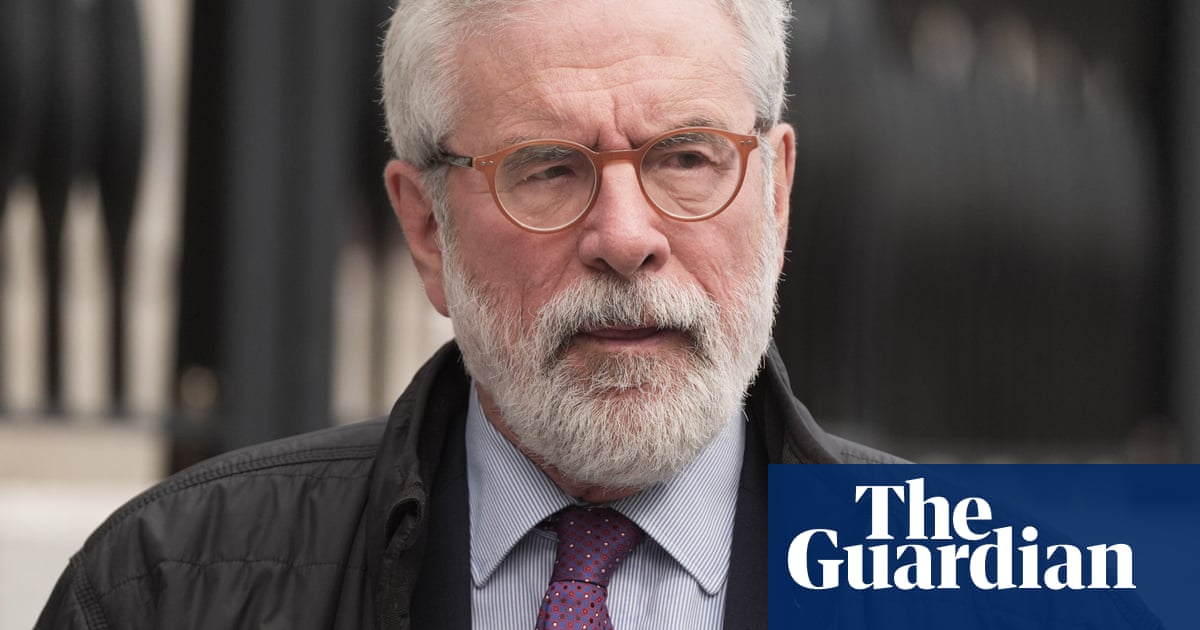Gerry Adamshas won a defamation action against the BBC over a documentary that carried a claim that he sanctioned the murder of an MI5 informant in 2006.
A jury at Dublin’s high court Friday found in favour of the former Sinn Féin leader after a high-profile trial that scrutinised his alleged membership of the IRA and his role duringNorthern Ireland’s Troubles. Adams was awarded €100,000 (£84,000) in damages.
During thefour-week triallawyers for Adams accused the BBC of a “grievous smear” and “hatchet job”. Lawyers for the broadcaster defended the documentary and said the libel action was a cynical attempt to launder Adams’s reputation.
The former West Belfast MP said a BBC Spotlight documentary and accompanying online article defamed him in 2016 by claiming he had sanctioned the murder ofDenis Donaldson, a former Sinn Féin official who was shot dead in County Donegal months after admitting he had for decades been a police and MI5 informant. The claim about Adams was made by an anonymous source known only as “Martin”.
Adams’s lawyers accused theBBCof “reckless journalism” and making an “unjustified” attack on a man credited with helping to bring about the peace process that drew a line under the Troubles in 1998.
The BBC said it acted in good faith and that the claim was presented as an allegation and not as a fact and that it had been corroborated by five other sources, including the security services. Lawyers for the broadcaster argued that because Adams was widely considered to have been an IRA commander during the Troubles he had little reputation to lose and that any damages would be a “cruel joke”.
The 76-year-old took centre stage in the witness box for much of the trial, which covered his childhood and political awakening, the evolution of the Troubles, theIRA’s deadly campaign and the peace process. Adams repeatedly denied ever being a member of the IRA. “It wasn’t a path that I took,” he said.
Other witnesses included Jennifer O’Leary, the BBC reporter who made the documentary, and media experts who gave contrasting views on the programme and accompanying article. Litigation lawyers estimate the total cost of the trial could exceed several million euros.
Before sending out the jury to begin deliberations on Thursday, Justice Alexander Owens said there was no need to decide on the veracity of the allegation that Adams sanctioned Donaldson’s murder, or to make a judgment on the republican leader’s role in Irish history.
The judge instructed the jury of five men and seven women to consider if the words in the documentary and article meant Adams had sanctioned the murder, or were presented only as an allegation. If the jury concluded the words meant he sanctioned the killing, the jury then needed to decide if the BBC had acted in good faith and proved its “fair publication” defence.
If the jury decided the programme and article were not fair and reasonable, and defamed Adams, it should assess damages on the basis of Adams’s current and recent reputation, said the judge. “A person’s reputation can change,” he said.
Adams was a teachta dála – a member of the Dáil – for Louth when the programme aired. He stepped down as president ofSinn Féinin 2018 after leading the party for 35 years.
